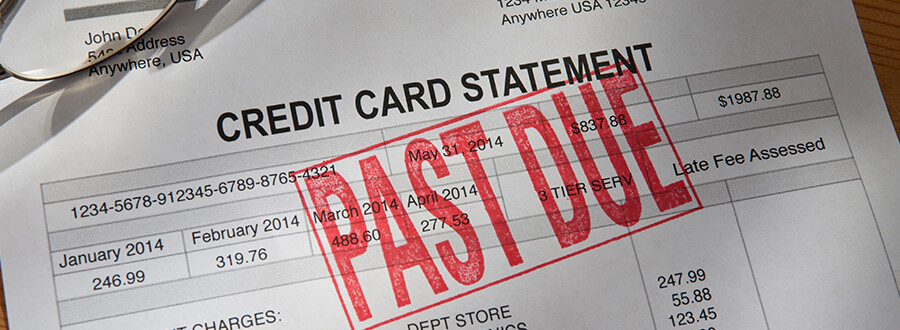Key Points
- An account charge-off occurs when you miss six consecutive payments.
- Your legal obligation to repay the debt will not change when a creditor charges off the account, but it will influence the value of your account.
- When the account value falls, creditors are more willing to settle a debt for less than the full balance owed.

This article is part 4 in a 5-part series on the life cycle of debt.
The first article, How Much is your Debt Worth, explains how the value of your debt decreases over time.
The second article discusses What Happens When You Miss a Payment .
The third article in the series covers Who Do You Pay When a Debt Collector Calls .
What is a Charge-off?
Delinquent accounts often lead to a charge-off. Most companies will charge-off an account after six months without a payment. However, some accounts, like installment loans and student loans, could charge-off after missing payments for 120 days. Making monthly payments for less than the minimum due could also lead to an account charge-off after a long-term delinquency.
The act of charging off debt is an accounting procedure that moves the account from the company balance sheet to bad debts. The value of the account to the creditor and to a third-party debt buyer falls significantly after charge-off.
Once an account reaches charge off, interest and penalties no longer accrue on the account.
What Are the Creditors Options After Charge-off?
Creditors can utilize an in-house collection department or contract with a debt collection agency. Both options cost the creditor money. In-house departments require company resources, where a third-party debt collection agency will take a commission from any monies collected.
When balances warrant, lenders also have the right to sue. However, this option is typically the most expensive and most time-consuming route.
The creditor can package a group of accounts and sell it to a debt buyer. At that point, the debt buyer becomes the account owner and will pursue payments.
Why a Charge-off Can Help You in Debt Negotiations
The value of the account matters: Lenders are the ultimate bean counters. They want to find the most efficient and cheapest way to manage bad debt. Because the account value plummets after charge-off, and all collection options incur additional costs, lenders want to deal with the account before the value further declines.
Charged-off accounts sell for pennies on the dollar: If the lender sells the debt to a debt buyer, they might get 0.10 to 0.20 cents on the dollar. Debt buyers then pursue payments on the debt. Because the debt buyer paid a fraction of the account’s full value, companies are more willing to negotiate a lower payoff on the account. Even a 50% discount could bring a profit to the new owner.
A financial hardship opens the door to debt settlement: Missing multiple payments is a clear sign of financial distress, and accounts without collateral provide limited means of collection. As the account’s value declines, companies want to find alternative ways to get a payment, even if that means accepting a debt settlement.
Final Thoughts
All collection options cost money. The account’s value declines the longer it goes without payment, creating favorable conditions for account settlement. Getting compensation directly from the borrower, even if it is significantly less than the full amount owed, is often the least costly and most efficient way to get an account off the books.
Our debt settlement company understands the debt life cycle and the settlement parameters for your creditors. Armed with this information, we can negotiate the best possible deal on your behalf, allowing you to become debt-free without paying creditors the full amount you owe.
